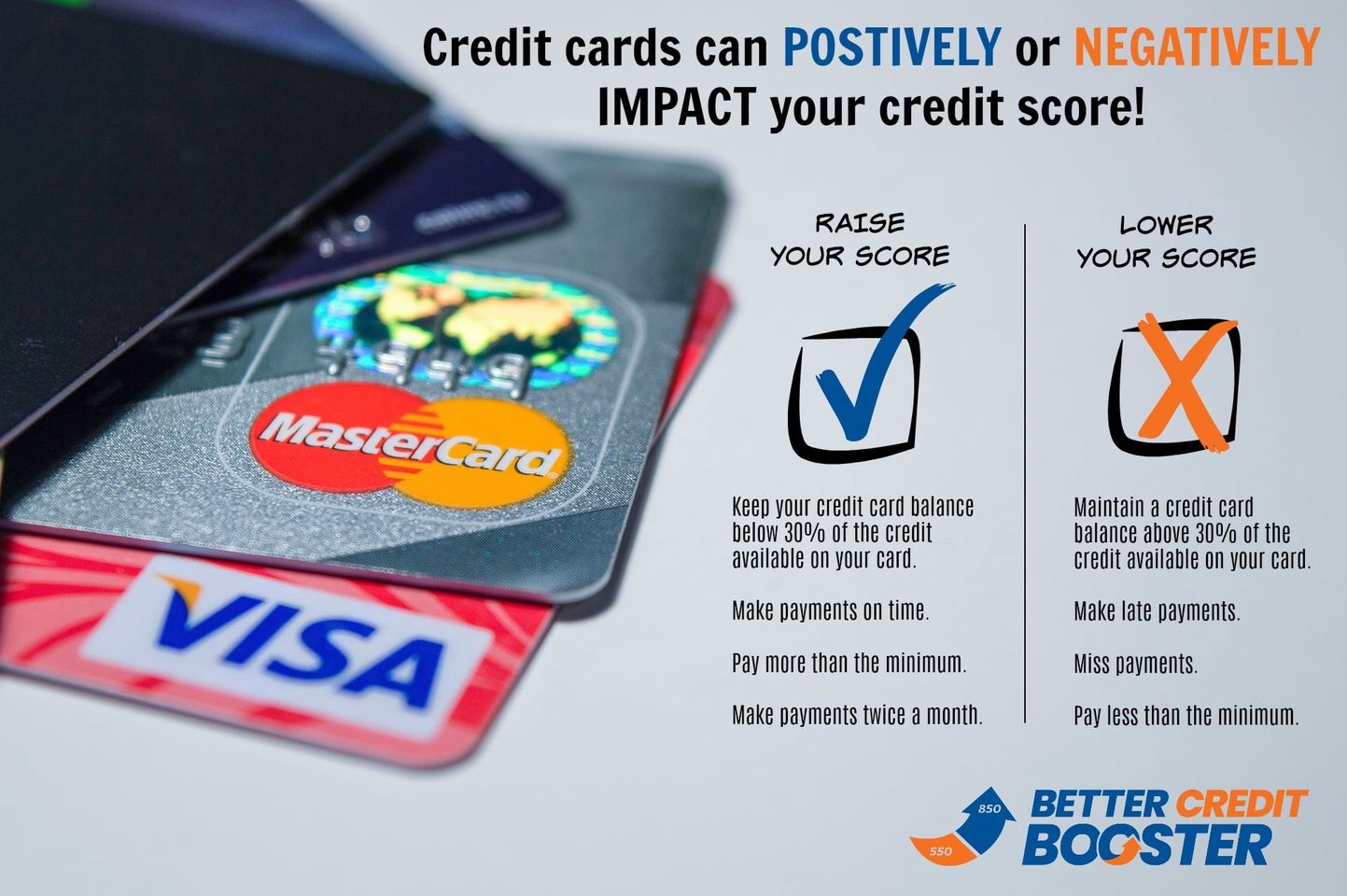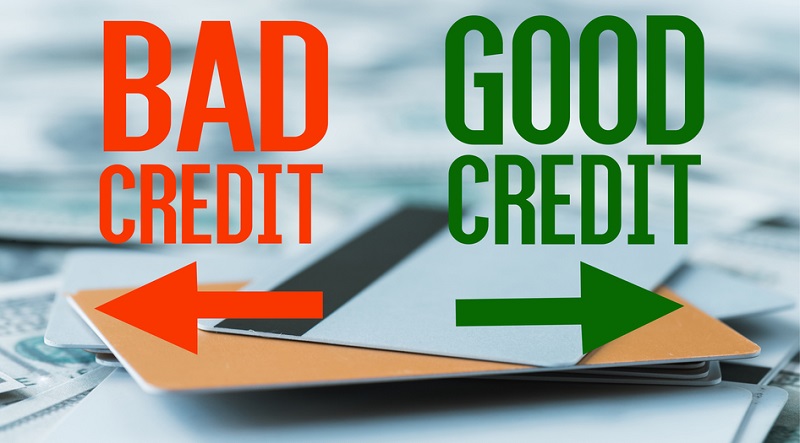- Home
- Repair 101
- How to Rebuild Poor Credit
Learn How To Rebuild Poor Credit In 5 Easy Steps!
Learn how to rebuild poor credit if you've had overdue utility bills, student loans, collection accounts, foreclosure, even if you have had to file bankruptcy.

Can I really learn how to rebuild credit? The truth is yes. A low FICO credit score can significantly impact your ability to borrow money.
Unfortunately, with horrible credit, you may not be able to be approved for new lines of credit, and even if you do, you'll end up getting negative and costly high-interest rates because of your bad credit history.
Whether it's to purchase your first home, upgrade your house, afford the vacation of a lifetime, or get some new wheels, you'll likely need credit at some point in your life.
So if your credit score isn't looking too healthy, you might want to start asking, "Where do I learn how to rebuild poor credit?" and look into ways to nudge your credit score in the right direction.
What Is A "Good" Credit Score?
Understanding what qualifies as a "good" credit score can give you a clear target when rebuilding your credit. Below is a quick guide to credit score ranges.
FICO Score Ranges
<580
Rating
Poor
Description: Your credit score is well below the average credits score of American consumers and demonstrates to lenders that you are a high-risk borrower.
580 – 669
Fair
Description: Your credit rating is still below the average score for American consumers. People with a fair score are somewhat 'safe' since many lenders will approve applications with this score.
670 – 739
Good
Description: Your credit score is either near or above the average American consumers' rating, and most lenders view this as a good score.
740 – 799
Very Good
Description: Your score is above the average of American consumers and tells lenders that you're a very dependable borrower.
800+
Exceptional
Your credit score is well above American consumers' average credit score and a clear sign that you're an exceptional borrower.
If you're want to learn how to rebuild poor credit, take note of the FICO score ranges above to know where you stand and what Fico score you're trying to reach.
Can I Learn How To Rebuild Poor Credit Myself?
Yes, do-it-yourself credit repair is possible. It just will require a little research, a fair bit of patience on your part, and time say 12 to 18 months or more (because credit repair won't yield results overnight).
Besides, how long or challenging it is to rebuild your horrible credit history depends partly on the number of derogatory marks in your credit file and the quality of your rebuilding plan.
How To Rebuild Poor Credit In Five Easy Steps

Is your impaired credit getting in the way of your financial freedom? Are you searching online, "how do I rebuild my credit score?"
If you have made a few poor financial choices in the past, and you want to learn how to rebuild poor credit, here are 5 DIY steps you can take to improve any FICO score and put yourself in a better position to borrow money in the future.
1. Get Your Credit Report In Order
Before you start rebuilding your credit, you'll want to figure out where your credit score stands. For this reason, request copies of your entire credit history (credit reports) from all three credit reporting bureaus:
- TransUnion,
- Experian,
- and Equifax.
To get your complete credit report for free, visit:
You can also try other credit score tracking websites and apps to get an idea of where you stand.
Once you get your credit reports, examine reported information to know what's hurting your score and areas you need to work on first. At the same time, check for mistakes in your report.
While you may believe that your score is not that bad, there could be errors in your credit report. Remember, these errors are costly, and if not removed, they can bring down your credit score by over 50 points!
What's worse, you may hurt your score even more by applying for credit and getting denied because of data entry errors or your lender's failure to update your credit information.
Confirm that all information in your reports is an accurate representation of your credit history. And with cases of identity theft cropping up every day, it's best to find out sooner than later that someone has applied for a credit card in your name. Using a good credit monitoring service can give you real-time updates about your credit file.
How does reviewing my credit report help me rebuild my credit?
If you spot even a tiny error in your credit report, dispute it right away with the credit reporting bureau that listed the inaccurate entry.
Calling to the attention of your creditor and the credit reporting bureau errors, fraudulent activity, or unfair information in your credit report will trigger an investigation.
Once the bureau completes the investigation, any incorrectly reported data will be removed from your credit report, hence improving your score.
2. Try To Pay All Bills And Repayments On-Time Going Forward
Payment history is a critical credit score component. Did you know that late utility bill payments such as phone or electricity bills can impact your credit score just as credit card defaults do?
Showing that you're a responsible borrower and in control of your finances can help rebuild your credit. If you're behind on any bill or repayment, try to get caught up as soon as you can. The truth is, your score won't improve until you start paying bills and making those payments on time all the time.
What can I do to help ensure that I pay bills on time and rebuild my credit quickly?
- Consolidate your debts, so it's easy to manage and make repayments
- Consider putting your bills under an automatic payment system
- Regularly pay outstanding debts and loans as soon as possible
3. Only Apply For New Credit Accounts If You Know There Is A Good Chance You May Be Approved.
Applying for new credit isn't necessarily a bad thing, so long as you only apply for credit lines that you know will be approved.
Every time you apply for new credit, the lender will most likely inquire about your credit history. These are referred to as "hard inquiries," which scrape off a couple of points from your credit score.
What can I do if I want new credit without undermining my efforts to rebuild my credit?
- Only apply for personal loans and credit cards you are sure you will get approved for
- Consider secured credit cards
- In case your application has been denied, wait for a while (at least three months) before making another attempt
- Avoid applying for new credit cards that you don't need
4. Open A Savings Account
Opening a savings account not only provides a - rainy day fund - if the unexpected happens but can also help you rebuild your poor credit score by offering you the flexibility always to make payments on time.
Besides, a savings account lets lenders know that you can now live within your means and still save some of your income.
5. Say Goodbye To Unnecessary Spending
When learning how to rebuild poor credit, the last thing you want is to leave too many derogatory marks showing your irresponsible financial decisions. Learn how to rebuild poor credit and how to do it quickly. You'll need to cut the bleeding.
You'll have to say goodbye to that online gambling account and avoid late-night ATM withdrawals and online shopping sprees because they can limit your credit appeal. Set yourself up for success, and to do that, you must be prudent with your cash.
Learning how to rebuild poor credit can be tricky, especially when you decide to do it alone. Luckily, by considering these tips, you should be able to see an improvement in your credit score within six months.
Free 5-Day - Start Repairing Credit Challenge - Do It Yourself - Including A Live Expert Question & Answer Session.







